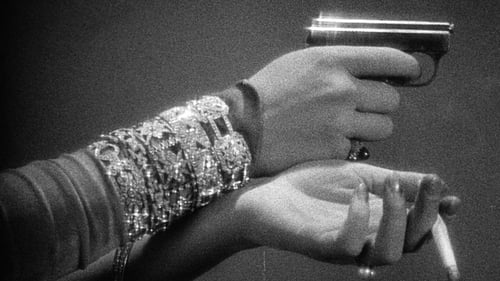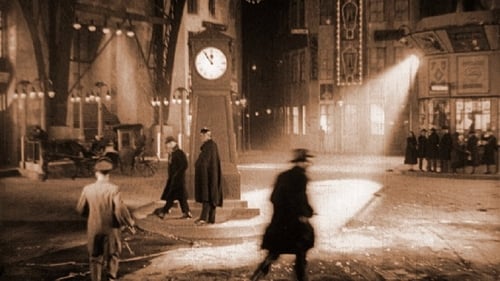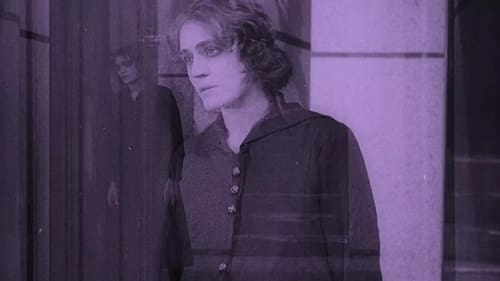Lupu Pick
Birth : 1886-01-02, Iași, Romania
Death : 1931-03-07
History
Lupu Pick was born on January 2, 1886 in Iasi, Iasi, Romania as Lupu Ludwig Pick. He was an actor and director, known for Die tolle Heirat von Laló (1918), Tötet nicht mehr (1920) and Marionetten der Leidenschaft (1919). He was married to Edith Posca. He died on March 7, 1931 in Berlin, Germany.

Director

Director
Film by Lupu Pick.

Producer
Napoleon at Saint Helena (German: Napoleon auf Sankt Helena) is a 1929 German silent historical film directed by Lupu Pick and starring Werner Krauss, Hanna Ralph and Albert Bassermann. The film depicts the final years of Napoleon between 1815 and 1821 during his period of exile on the British Atlantic island of Saint Helena following his defeat at Waterloo.

Writer
Napoleon at Saint Helena (German: Napoleon auf Sankt Helena) is a 1929 German silent historical film directed by Lupu Pick and starring Werner Krauss, Hanna Ralph and Albert Bassermann. The film depicts the final years of Napoleon between 1815 and 1821 during his period of exile on the British Atlantic island of Saint Helena following his defeat at Waterloo.

Director
Napoleon at Saint Helena (German: Napoleon auf Sankt Helena) is a 1929 German silent historical film directed by Lupu Pick and starring Werner Krauss, Hanna Ralph and Albert Bassermann. The film depicts the final years of Napoleon between 1815 and 1821 during his period of exile on the British Atlantic island of Saint Helena following his defeat at Waterloo.

Director
A prince makes a socialite think she spent the night in his room.

Dr. Masimoto - Matsumoto, English version
The mastermind behind a ubiquitous spy operation learns of a dangerous romance between a Russian lady in his employ and a dashing agent from the government's secret service.

Producer
A feature-length jewish joke: The heavily indebted Sami Bambus fakes his death, so that his debts are taken over by the greedy heirs, led by the scrounger Prellstein. The putative heir also brings speculators to the scene, and the general confusion can ultimately only be reconciled by the summoned uncle Salomon and by Samis' return from the dead.

Writer
Directed by Lupu Pick, who died far too young, it was billed as a melodrama about a ring of counterfeiters on its first screening in New York City. Pick plays with the already well-established conventions of the detective genre for maximum effect and humor.

Director
Directed by Lupu Pick, who died far too young, it was billed as a melodrama about a ring of counterfeiters on its first screening in New York City. Pick plays with the already well-established conventions of the detective genre for maximum effect and humor.

Producer
A taxi driver in Berlin refuses to give up his horse and switch to motor transport.

Gottlieb Lüdecke
A taxi driver in Berlin refuses to give up his horse and switch to motor transport.

Screenplay

Producer

Director

Director

Producer
A man must choose between his mother and his wife as the rivalry ratchets up throughout New Year's Eve. Like Pick's previous films, New Year's Eve does not use intertitles.

Director
A man must choose between his mother and his wife as the rivalry ratchets up throughout New Year's Eve. Like Pick's previous films, New Year's Eve does not use intertitles.

Producer

Screenplay

Producer

Director

Director

Writer

Producer

Director

Writer

Producer

Producer
The young Evelyne lives with a man, her fiancee Frank, with whom she has a child. But her fiancee is a rundown drunk constantly hanging over the bottle. Evelyne wants to leave Frank.

Director
The young Evelyne lives with a man, her fiancee Frank, with whom she has a child. But her fiancee is a rundown drunk constantly hanging over the bottle. Evelyne wants to leave Frank.

Reisender (uncredited)
Scherben is about the everyday lives of a railway trackman, his wife and daughter in a remote, isolated house in a winter landscape, Mayer and Pick introduce increasingly stronger disturbances into their daily routines.

Producer
Scherben is about the everyday lives of a railway trackman, his wife and daughter in a remote, isolated house in a winter landscape, Mayer and Pick introduce increasingly stronger disturbances into their daily routines.

Writer
Scherben is about the everyday lives of a railway trackman, his wife and daughter in a remote, isolated house in a winter landscape, Mayer and Pick introduce increasingly stronger disturbances into their daily routines.

Director
Scherben is about the everyday lives of a railway trackman, his wife and daughter in a remote, isolated house in a winter landscape, Mayer and Pick introduce increasingly stronger disturbances into their daily routines.

Dr. Thilenius

Director

Amtsmann

Writer

Director

Director

Doktor Tomari

Co-Director
The film tells the story of Ivan Mazeppa, a Ukrainian page at the Polish court who has an affair with the young wife of a much older count. Outraged when he learns of the incident, the nobleman has Mazeppa tied naked to a wild horse which is then released into the wilderness. The bulk of the poem describes the long hazardous journey during which Mazeppa almost dies twice but ultimately survives and returns to his native Ukraine.

Director

Producer
The director and co-writer Lupu Pick plays musician Erik Paulsson, who loses his beloved son after a peaceful yet critical poetry reading is raided by the tsarist forces. Paulsson, beside himself with grief, kills the officer responsible and is sentenced to life, which will mean 18 years in prison before he is free again. While he is inside, by a strange quirk of fate, his daughter Karin falls in love with writer Sebald Brückner, the son of the state prosecutor, who indicted Paulsson and is a staunch advocate of the death penalty. The conflict between the fathers does not impair the relationship of the young couple. However, when Sebald’s long-desired success on the stage is threatened by a vengeful theatre director who had sexually harassed Karin, he is enraged and kills the other man in a fight. The prosecutor now must face the blow of losing his own son to the death penalty.

Screenplay
The director and co-writer Lupu Pick plays musician Erik Paulsson, who loses his beloved son after a peaceful yet critical poetry reading is raided by the tsarist forces. Paulsson, beside himself with grief, kills the officer responsible and is sentenced to life, which will mean 18 years in prison before he is free again. While he is inside, by a strange quirk of fate, his daughter Karin falls in love with writer Sebald Brückner, the son of the state prosecutor, who indicted Paulsson and is a staunch advocate of the death penalty. The conflict between the fathers does not impair the relationship of the young couple. However, when Sebald’s long-desired success on the stage is threatened by a vengeful theatre director who had sexually harassed Karin, he is enraged and kills the other man in a fight. The prosecutor now must face the blow of losing his own son to the death penalty.

Erik Paulsson
The director and co-writer Lupu Pick plays musician Erik Paulsson, who loses his beloved son after a peaceful yet critical poetry reading is raided by the tsarist forces. Paulsson, beside himself with grief, kills the officer responsible and is sentenced to life, which will mean 18 years in prison before he is free again. While he is inside, by a strange quirk of fate, his daughter Karin falls in love with writer Sebald Brückner, the son of the state prosecutor, who indicted Paulsson and is a staunch advocate of the death penalty. The conflict between the fathers does not impair the relationship of the young couple. However, when Sebald’s long-desired success on the stage is threatened by a vengeful theatre director who had sexually harassed Karin, he is enraged and kills the other man in a fight. The prosecutor now must face the blow of losing his own son to the death penalty.

Director
The director and co-writer Lupu Pick plays musician Erik Paulsson, who loses his beloved son after a peaceful yet critical poetry reading is raided by the tsarist forces. Paulsson, beside himself with grief, kills the officer responsible and is sentenced to life, which will mean 18 years in prison before he is free again. While he is inside, by a strange quirk of fate, his daughter Karin falls in love with writer Sebald Brückner, the son of the state prosecutor, who indicted Paulsson and is a staunch advocate of the death penalty. The conflict between the fathers does not impair the relationship of the young couple. However, when Sebald’s long-desired success on the stage is threatened by a vengeful theatre director who had sexually harassed Karin, he is enraged and kills the other man in a fight. The prosecutor now must face the blow of losing his own son to the death penalty.

Writer

Director

Writer
Operette-like oriental fantasy about a forbidden love between en english boy and a chinese girl.

Operette-like oriental fantasy about a forbidden love between en english boy and a chinese girl.

Director
Operette-like oriental fantasy about a forbidden love between en english boy and a chinese girl.

Writer

Director

Writer

Director

Director

Writer

Dr. Franzius
A painter with syphilis infects his brother's wife and the child born of their affair.

Writer
A painter with syphilis infects his brother's wife and the child born of their affair.

An extremely jealous artist slips into a monkey costume and kills all those men who come too close to his wife, another artist.

o. A.
Part of the artificial-creature series encompassing Der Golem (1914 and 1920), Alraune (1918, 1928, 1930) and Metropolis (1926), 'Homunculus' was the most popular serial in Germany during World War I even influencing the dress of fashionable Berlin. Foenss, a Danish star, is the perfect creature manufactured in a laboratory by Kuehne. Having discovered his origins, that he has no 'soul' and is incapable of love, he revenges himself on mankind, instigating revolutions and becoming a monstrous but beautiful tyrant, relentlessly pursued by his creator-father who seeks to rectify his mistake.

Spalanzani, Direktor eines Museums
This movie, directed by Richard Oswald, is based on the operetta "Les contes de Hoffmann" by Jacques Offenbach (1819-1880), which is a genial musical potpourri from various short stories and novels by the Prussian writer, composer, painter, lawyer and judge E.T.A. Hoffmann (1776-1822). While Hoffmann's literary work was longtime considered to be merely fantastical, it was finally researched, in the last years, according to its metaphysical background. Characteristic for Hoffmann's work is his life-long fight against rationalism and for the revelation of nature morte, culminating mostly in carnival-like scenes anticipating literary techniques only described in the works of Bachtin and Bachelard.

A friend sacrifices himself, taking the blame for a murder upon himself. A guilty conscience will end up killing the real culprit.



